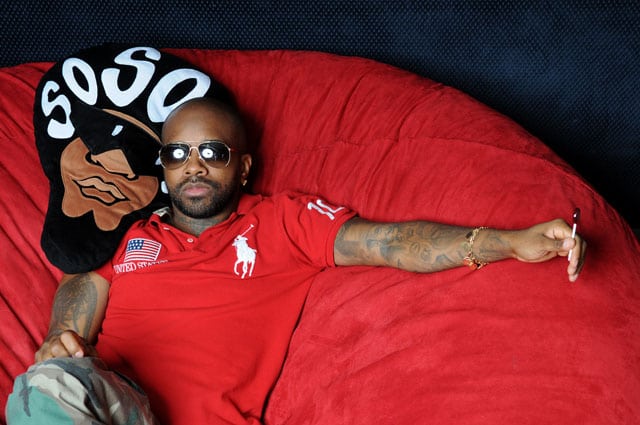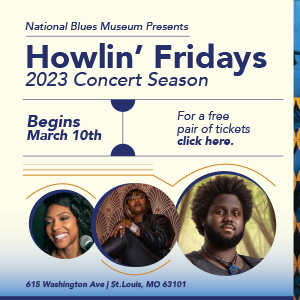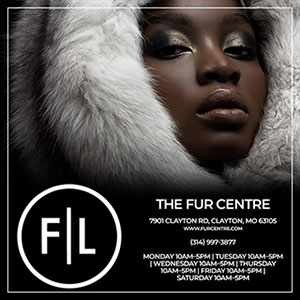
So So Def at 20: How it all began
Jermaine Dupri, Da Brat, Kris Kross, Xscape, and Bone Crusher tell the story of the iconic Atlanta label’s rise
courtesy of Creative Loafing Atlanta
For 20 years, Atlanta’s rap music industry has stood on the shoulders of So So Def Recordings and the label’s founder Jermaine Dupri — the man recently acknowledged as the “Mayor of Atlanta” by the city’s actual mayor, Kasim Reed. Dupri and So So Def rose to prominence in the ’90s with a succession of preteen hit-makers, R&B slingers, and club rap luminaries, paving the way for a Southern hip-hop takeover. The label’s iconic afroman logo and I-75/85 billboard that literally welcomed people to Atlanta became synonymous with the city’s musical identity, and made Dupri a cultural ambassador of sorts. Dozens of artists owe a debt to Dupri: Bow Wow, Da Brat, Lil Jon, Kris Kross, Xscape, Jagged Edge, Bone Crusher, Dem Franchize Boyz, and more all got their start with So So Def. In honor of the label’s 20th anniversary, Dupri is hosting an all-star blowout with performances by So So Def’s entire roster of artists, as well as special guests Nelly, Ludacris, and more at the Fox Theatre on Feb. 23.
Here, Dupri, 40, tells the story of So So Def’s rise, along with his father Michael Mauldin, Da Brat, LaTocha Scott of Xscape, Chris “Mac Daddy” Kelly of Kris Kross, and Bone Crusher.
When Jermaine Dupri was born in 1972, his father, Michael Mauldin, was gaining momentum in the Atlanta music scene as a tour manager and show promoter. From the beginning, he nurtured his son’s interest in music, which manifested early in his ability to mimic Michael Jackson’s dance moves.
Michael Mauldin, Jermaine Dupri’s father and long-time industry executive: When Jermaine was a kid, I recognized his talents. At 3 years old, he got a drum set. Times were hard. I was out on the road with acts like Brick and S.O.S. Band, Cameo. Jermaine came up at a time when me, him, and his mom were living in a two-bedroom apartment, just trying to make it work. But I always saw his music ability. There are some old photos of me in the studio with Brick and acts like that and you can see Jermaine and the intensity in his eyes as he’s watching those serious musicians.
Jermaine Dupri: I got a bird’s-eye view of being around this type of music-business environment when I was young. There was a Diana Ross concert when I was like 10, and as part of the show she asked all the little kids to come on stage and dance. My mother had just gone to the bathroom, and told me to stay right there in the seat. People were telling me to go, and I was trying to obey my mother and stay put, but they kept saying I should go. So when my mother got back I was on stage. I know she was probably like, “What the hell is going on?” That was probably the beginning of me wanting to perform.
Mauldin: I think the Atlanta Journal posted something about a young kid upstages Diana Ross, very friendly-like. Shortly thereafter, Right On! magazine did an article with Jermaine.
Dupri: The New York City Fresh Fest started in Atlanta in 1984, and my father was stage manager for the tour. They had a slot for an opening act, so I did it, and my show seemed efficient enough so that, along with my father’s doings, they figured I could come along for the whole tour. That was my introduction to hip-hop. I met everybody — Run-D.M.C., Whodini, Grandmaster Flash — and I was 12-13. This ain’t Playboy, so I can’t tell you the stories I remember.
Mauldin: Then the next thing you know, Whodini was doing a video out on the road, “Freaks Come Out at Night.” And when that video was happening we were on tour with the Fresh Festival. And Barry Weiss, who ran Jive Records at the time, wanted to know if it was OK for Jermaine to be in the video. So Jermaine got off the bus with Whodini and a bunch of other dancers, and he was dancing and pop-locking. That video popped and made it work. So that really made things happen on a national basis.
Dupri: I thought I was a local celebrity after Fresh Fest, but nobody knew who I was. In my neighborhood, people knew I had been on the tour, and knew I had gear that nobody else had, but I wasn’t a real celebrity. There was no Atlanta scene then. There were producers from out of town coming here to work with other artists, like Jimmy Jam and Terry Lewis, who came to work with the S.O.S. Band. There wasn’t really anyone here doing anything, though, except MC Shy D. He was the only rapper from Atlanta who was trying to do something from the city. I met Shy D back when I used to dance. He wrote my first rap, so I guess you can say he got me into rap.
- Events: Business Bestie Meet-Up - Friday, May 17, 2024
- Aziel Jackson – In His Own Words: Making His “FIRST MOVE” in Fashion - Thursday, March 14, 2024
- Miami Dolphins’ Stand-Out Terron Armstead Continues To Win In The Art of Giving-Back - Monday, June 5, 2023








